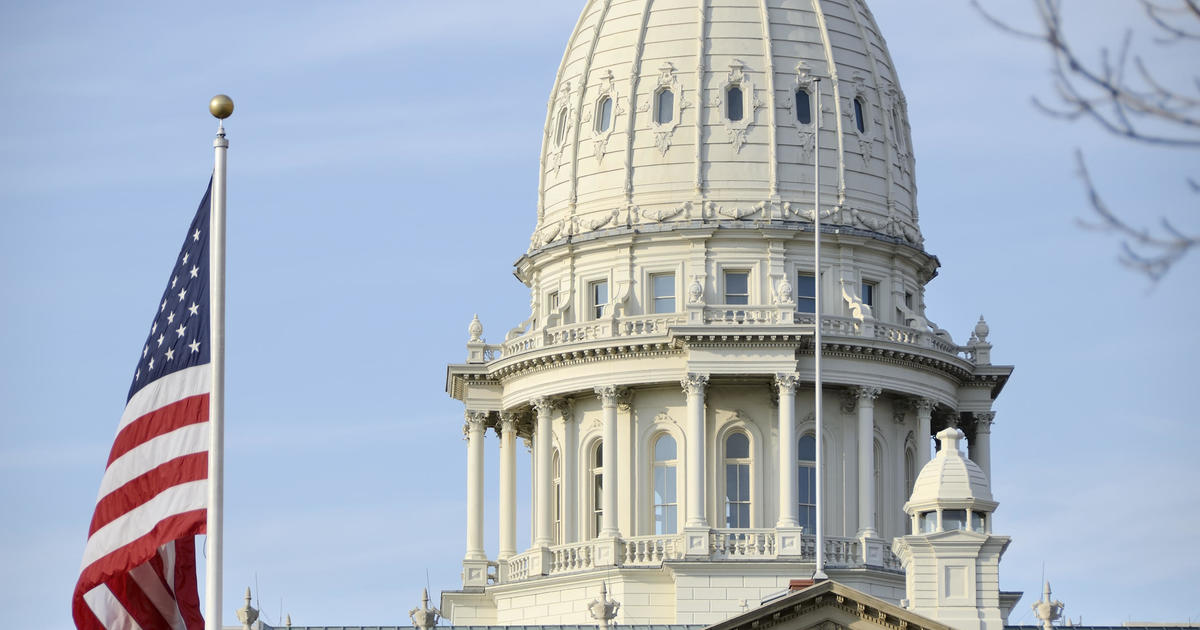As Dollars Dwindle, So Have Michigan Police Ranks
By TIM MARTIN/ Associated Press
LANSING, Mich. (AP) - Michigan's cash crunch has resulted in the nation's largest percentage drop in law enforcement employees over the past decade, gutting some police stations, lowering arrest totals and leaving many residents to fend for themselves.
Gov. Rick Snyder - saying it's unacceptable that Detroit, Flint, Pontiac and Saginaw rank among the nation's top 10 in violent crime rates for cities with at least 50,000 people - plans to detail how he'd boost public safety during a special message to the state Legislature early this month.
The Republican governor's plan is expected to include an additional $15 million for what he has called "enhancement" of law enforcement.
"The key message on public safety is, it's a comprehensive answer," Snyder said Friday in Traverse City. "It's law enforcement, criminal justice reform, and crime prevention. We need to put all of those together, because it's not just about dealing with one part of the problem, (it's) dealing with the whole cycle of crime. Because the best answer is for someone to have a job, and to have an opportunity for a positive life. That's how you really stop crime from happening."
Snyder already has proposed increasing the Michigan State Police budget by 16 percent from the state's general fund. Attorney General Bill Schuette has proposed spending $140 million to hire 1,000 new officers over the next two years.
But there's no quick fix for Michigan's public safety ranks, which have been decimated because of a downtrodden economy and reduced tax revenues going to local governments.
The state has lost more than 3,400 law enforcement officers since the terrorist attacks of September 2001, according to the Michigan Commission on Law Enforcement Standards. Michigan lost nearly 15 percent of its civilian and officer law enforcement employees combined from 2001 through 2010, the steepest percentage drop in the U.S., according to a review of annual FBI statistics.
Criminals tend to be bolder and more active when police numbers shrink, law enforcement officials say.
"The public should understand that it's not an anomaly or it shouldn't be unexpected that four of America's most dangerous cities are located in Michigan," said Terrence Jungel, a former sheriff who now leads the Michigan Sheriffs' Association. "Rats instinctively know where the cheese is. They're going to migrate to the areas that have the least chance of them getting caught."
Concern about crime ranges from the violent attacks to the annoying property damage.
Federal authorities recently announced plans to increase their presence in some of Detroit's crime-plagued neighborhoods.
The move came after a 6-year-old boy was critically wounded during an attempted carjacking, and shootings killed a 12-year-old girl and 9-month-old boy this year.
Al Hubarth was surprised when thieves stole a camera, GPS and other items from his car at 10 a.m. on a summer morning. The Pontiac resident had only been away from it for 10 minutes, ducking back inside his house to change a grandchild's diaper.
"We need more police officers," Hubarth said. "Things just aren't as safe as they were 10 years ago."
Statewide arrests have fallen annually in recent years, with 2010 totals running 15 percent below levels in 2006. Many in law enforcement say the declining number of officers is one factor contributing to the reduced arrest numbers.
And even though reported crime is down in many communities, those statistics can be misleading because some crimes may simply go unreported by residents who believe police won't have the time or resources to assist them.
"We had officers out there before taking reports," Michigan State Police Director Kriste Kibbey Etue said. "A lot of police departments won't even file a report on certain incidents these days."
Departments losing police officers don't have the resources to respond to some types of crimes or staff some events.
Detroit now closes some of its police precincts to the public after 4 p.m. In Saginaw, the police department's public lobby - once a 24/7 operation - now is staffed only 7 a.m. to 7 p.m. on weekdays.
Fewer departments respond to car-deer accidents or other traffic mishaps in cases where people aren't injured.
In some cities, police no longer quickly respond to home break-ins if it's clear the intruder is gone. Sometimes police don't travel to the property crime scenes at all, instead asking citizens to come to the police station or go online to file reports.
Many police departments have stopped responding to motorists who lock themselves out of vehicles, and to animal complaints, according to a survey from the Michigan Association of Chiefs of Police.
In Flint, the size of the police force has been cut in half in less than a decade. Neighborhood groups are taking it upon themselves to more actively patrol crime-ridden neighborhoods in hopes their presence will act as a deterrent to home invasions, robberies and other crimes.
"The crime in our neighborhood is out of hand," said Art Diamond, who helps run a neighborhood group on the city's northeast side. "We had to do something to try and win this neighborhood back before it got too bad." Michigan State Police have become more active in Flint and other high crime areas, and recently reorganized its post system to keep more troopers on the road statewide.
But the total number of troopers assigned to posts had dipped to 949 as of late January, down from about 1,350 a decade ago because of annual budget cuts.
In Saginaw, violent crime rates have dropped in recent years, but the city still rates as one of the nation's roughest for cities of its size. Police Chief Gerald Cliff laments the reduction in officers and services in his city and across much of the state.
"It's a sad turn of events that the economy is where it is, and that we're having to respond to it like that," Cliff said. "It's certainly not my idea of homeland security."
(Copyright 2012 by The Associated Press. All Rights Reserved.)



